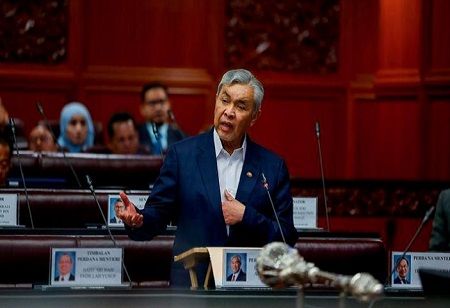The Higher Technical and Vocational Education and Training (Hi-TVET) program is to receive a significant upgrade, incorporating advanced areas such as robotics, artificial intelligence (AI), the Internet of Things (IoT), and sophisticated electric vehicle (EV) systems into its curriculum. This is done in an effort to prepare students better with future-proof skills and enhance Malaysia's role in the global technology arena.
Deputy Prime Minister Datuk Seri Dr Ahmad Zahid Hamidi made the announcement in his address at the Dewan Negara, citing increasing global interest in the enhanced TVET system. He added that BYD, one of China's top automakers, has contributed six new EVs for training students, upgrading from old vehicles and providing learners with hands-on experience with current technology.
Before, students were learning on older, first-generation cars that restricted them from seeing new technology. So, we're turning the system around by studying about EVs, and that has been received positively," explained Zahid, who is also the chairman of the National TVET Council (MTVETN). He further stated that collaborations with nations such as Japan and Germany would make the programme even stronger, citing the Japanese KOSEN system and the German early-start vocational training.
The Deputy Prime Minister hoped that this new TVET ecosystem would impact national education policy, particularly in solving Malaysia's shortage of engineering talent. "The Prime Minister has emphasized that we need to enhance STEM education. As a starting point, TVET is the answer. Insya-Allah, we will adopt this in a proactive way", he said.
Aside from TVET, Zahid mentioned plans for Indian youth in agro-economic ventures under Felda, citing that among 112,638 settlers, 1,538 are Indian, in addition to other ethnic groups. He stressed Felda's merit-based and interest-driven approach in providing assistance to budding entrepreneurs.
As for Orang Asli residential areas, Zahid explained that the government has no short-term intention to build commercial premises on reserve land. "Land gazetted as an Orang Asli reserve is mainly reserved to ensure the people have a comfortable and sustainable place to settle, not for commercial uses", he said. But he conceded the possibility for future development, promising that any action taken would be for the best interests of the people and their rights.
Hi-TVET expansion constitutes an important movement towards the technology upgrading of technical education in Malaysia, driving innovations, and setting opportunities for graduates to excel within high-tech manufacturing sectors. Broader government aspirations for inclusive growth and education improvement reflect its push towards the formation of a developed, visionary-labor force workforce.

